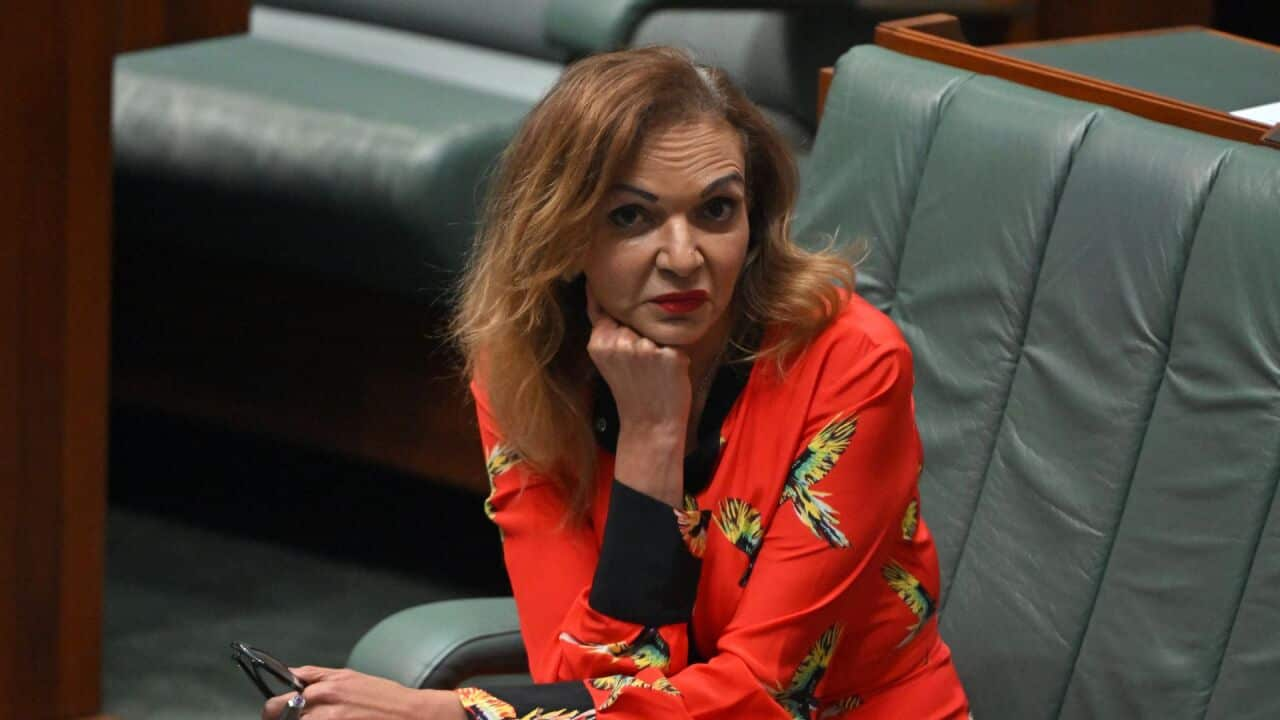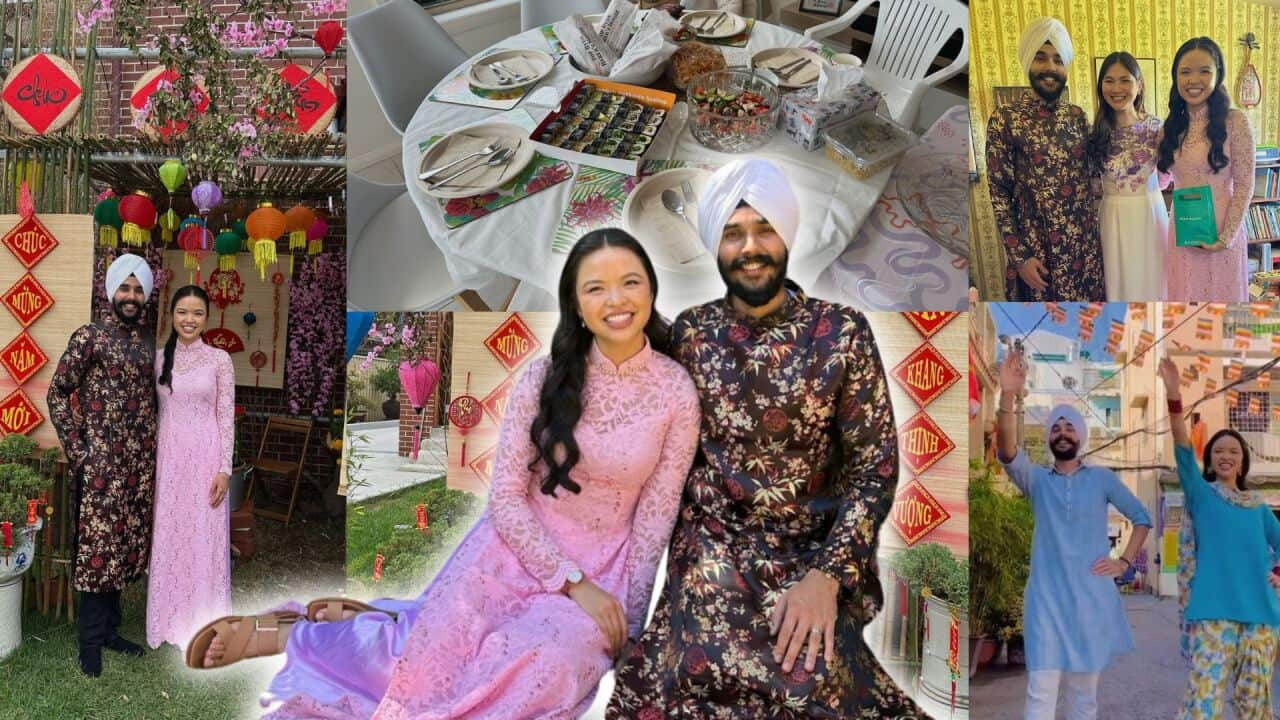Tim Soutphommasane has made the comments during his last speech as commissioner, accusing politicians and the media of exploiting race for monetary or political gain.
Tim Soutphommasane has been Race Discrimination Commissioner since August 2013.
Before joining the Human Rights Commission, he was a political philosopher at the University of Sydney and Monash University, specialising in thinking on multiculturalism, patriotism and national identity.
Now, in his final speech as commissioner, Dr Soutphommasane says, when he began his role, he never foresaw a resurgence of nationalist politics but he believes race politics is back in Australia.
He accuses federal politicians of using multicultural issues to advance their political agendas.
And he has criticised Turnbull Government ministers for leading debates which, he says, have promoted ethnic separatism. “We must remain vigilant, because race politics is back. I take no pleasure in saying this, and it causes me pain to say this, but it feels right now that there’s never been a more exciting time to be a dog-whistling politician or a race-baiting commentator in Australia. Five years ago, I wouldn’t have said it was likely that we would see the resurgence of far-right politics. I wouldn’t have expected that the biggest threats to racial harmony would come from within our parliaments and from sections of the media. Yet, here we are,” he said.
Dr Soutphommasane cites research from The Scanlon Foundation showing more than one in three Australians from a non-English-speaking background has experienced racial or religious discrimination at higher rates.
The Scanlon Foundation’s research also highlights research showing 77 per cent of people from African backgrounds have experienced discrimination.
Dr Soutphommasane says, at the moment, many African communities are bearing the brunt of a public race debate, with politicians enthusiastically seeking debates about immigration, multiculturalism and crime.
He says, while race and ethnicity have been at the centre of many debates about crimes by South Sudanese youths, that was not the case with white murderers such as Adrian Bayley or Roger Rogerson.
“Just as there was in the 1980s and 1990s, there is now panic setting in about migrants and minorities. Let’s consider the evidence here. Since the start of this year, media and political concern about a so-called ‘African gangs crisis’ in Melbourne has grown feverish. According to some, Melburnians are now afraid to go out for dinner because of rampant African youth crime. Last month, the Prime Minister declared there was real concern about ‘Sudanese gangs.’ The Liberal state opposition in Victoria has distributed pamphlets claiming it would ‘stop gangs hunting in packs,’ pamphlets that featured a shadowy photograph of hooded, dark-skinned youths,” added Dr. Soutphommasane.
Several commentators and politicians have drawn specific mentions in Dr Soutphommasane’s speech, including Prime Minister Malcolm Turnbull for comments about African gangs.
Home Affairs Minister Peter Dutton was cited for saying white South African farmers deserved special attention, and commentators such as Andrew Bolt were cited for writing opinion pieces about migration causing so-called “ethnic ghettos.”
Dr Soutphommasane says there is simply no compelling evidence that Australian multiculturalism, as it currently stands, is in danger of veering towards ethnic separatism.
“The evidence shows that we continue to conduct integration extremely well. The children of migrants, on average, outperform the children of Australian-born parents on education and employment. Just take a walk here on this campus to see evidence of that. Our social mobility remains high by international standards. These areas which people like to slander as ethnic ghettos, they’re dynamic and vibrant communities, where no single ethnic or racial group predominates and where property prices have been on a steady rise. (Those are) hardly signs of ethnic ghettos,” he said.
Dr Soutphommasane has also criticised media outlets for fuelling racism by running debates about race-related issues without a sense of proportion or compelling evidence to support claims.
He points to a 2017 Fairfax Ipsos poll showing almost four in five Australians did not support changing section 18C of the Racial Discrimination Act to legalise speech that “offends, insults or humiliates” on the basis of race.
In 2014, the Abbott Government had abandoned its attempt to repeal the section after a widespread backlash, and, in March 2017, a government bill was introduced in the Senate and also defeated.
Dr Soutphommasane says many Australians do not want to see the current protections against discrimination further eroded. “First Australians, ethnic communities, civil-society advocates all were united in defending the act. Labor and the Greens have been unwavering in their stance, too. And while the Government’s policy has been to change the act, we have seen a number of Liberal parliamentarians express vocal and important support for keeping the act as it is. Again, we have seen how the endurance of the Racial Discrimination Act depends on some measure of bipartisan support,” Dr. Soutphommasane added.
Federal Attorney-General Christian Porter is yet to announce Dr Soutphommasane’s replacement.
Listen to this feature in Punjabi here.
Follow us on Facebook and Twitter.




